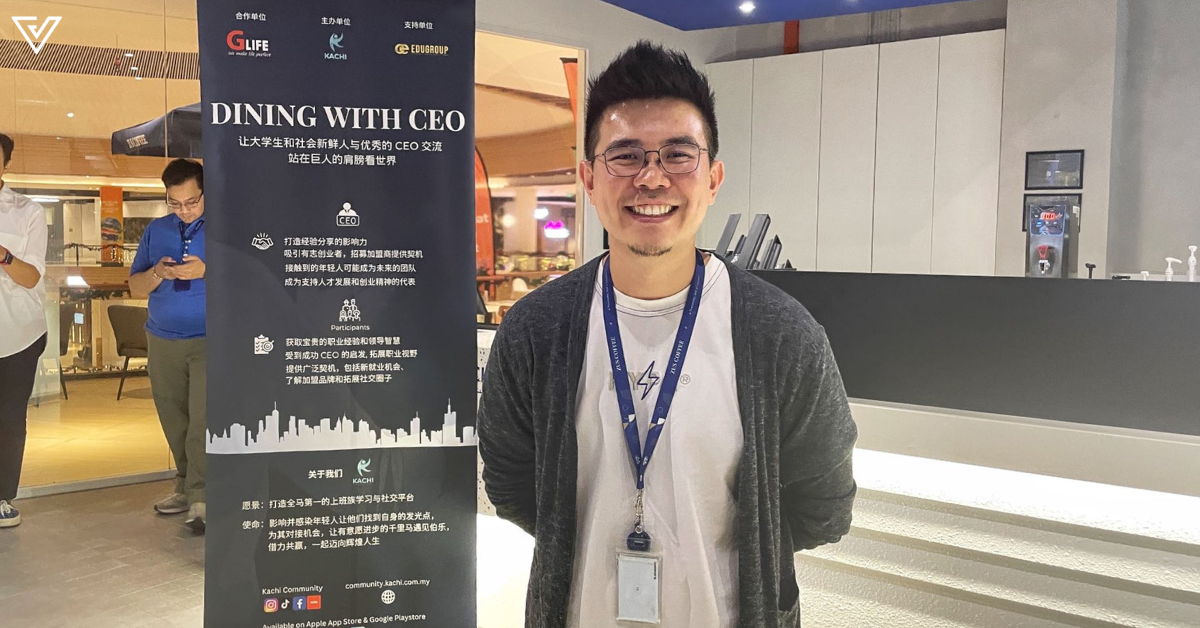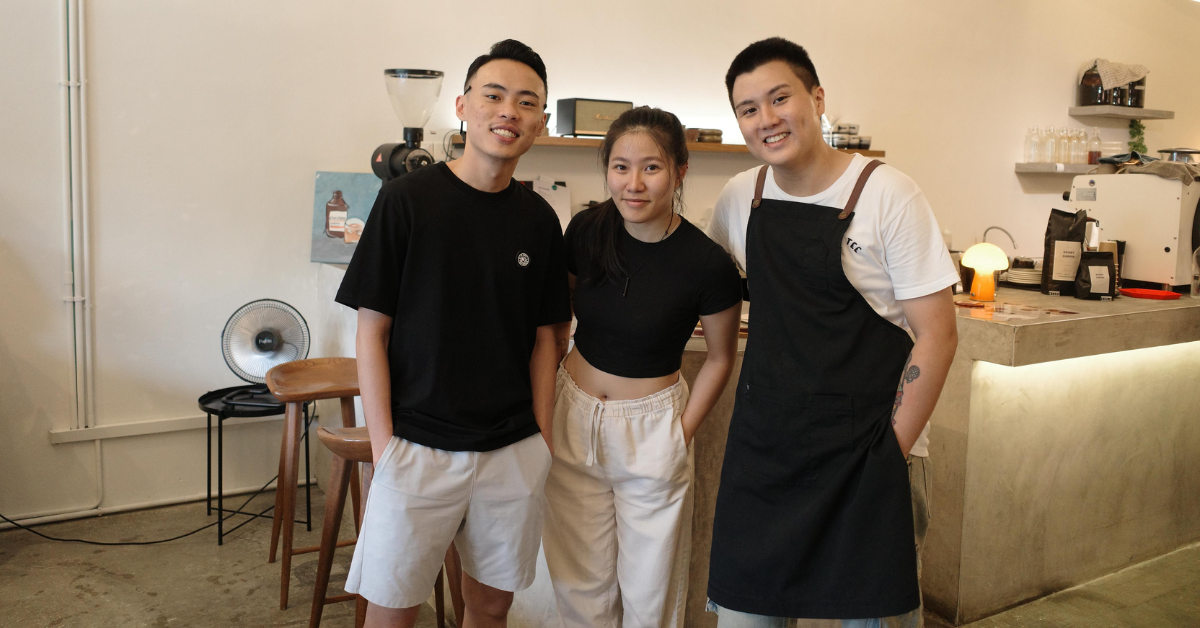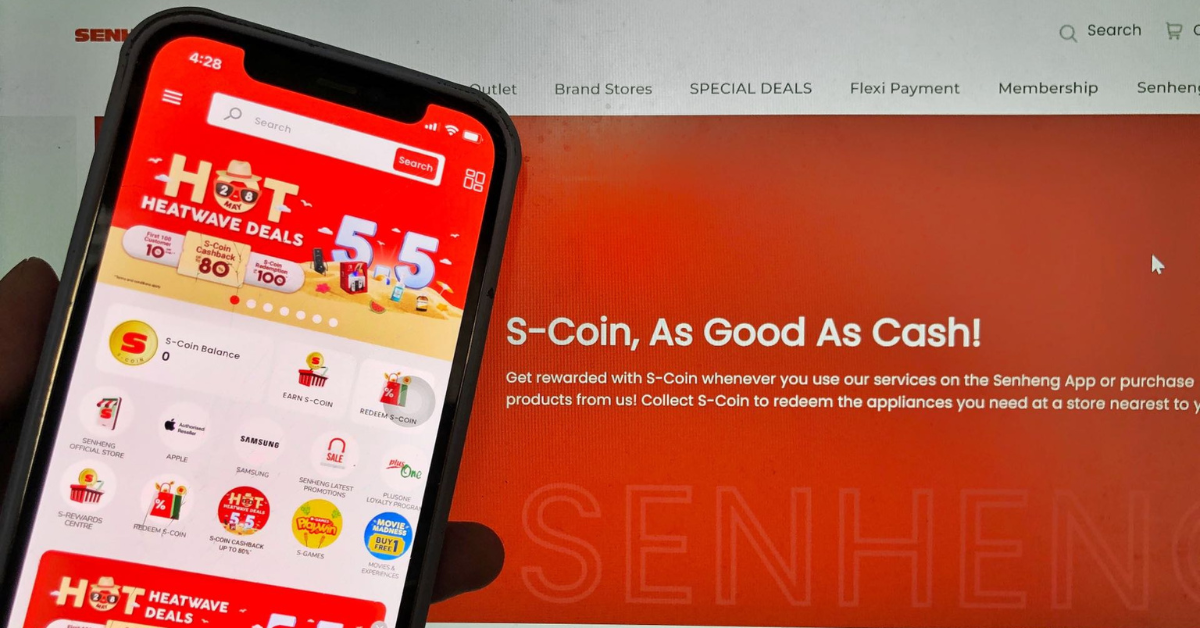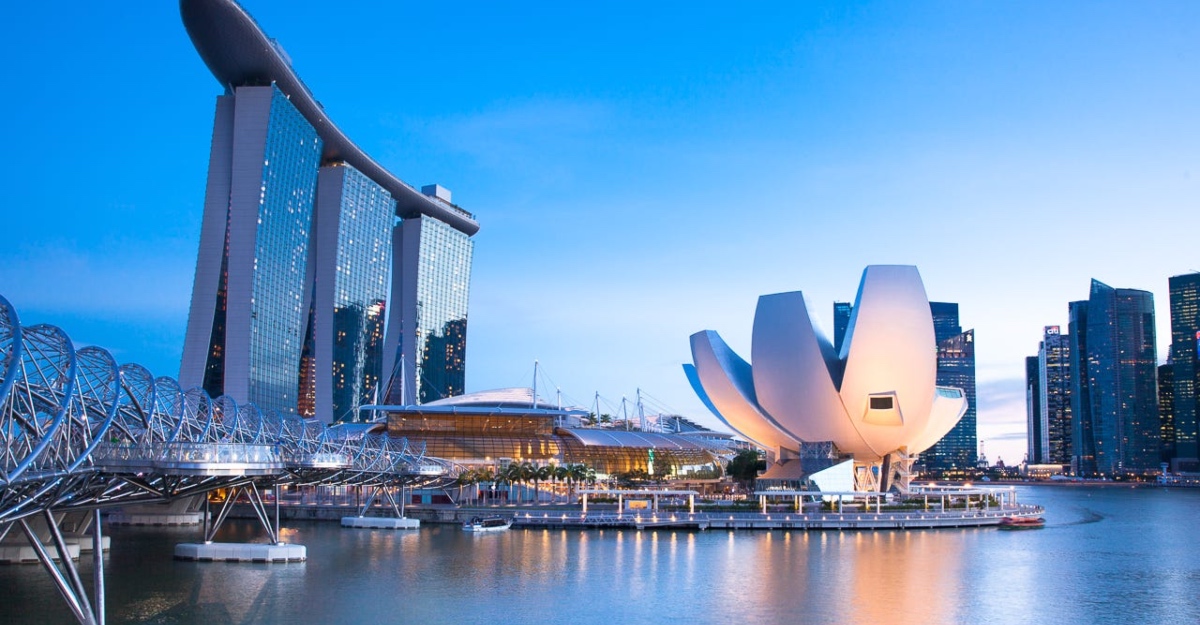On a Tuesday afternoon in early December, a throng of people buzzed about in front of the ZUS Coffee outlet at Tropicana Gardens Mall.
They were all here for one thing. No, not coffee, but valuable insights from the man behind the business—Venon Tian.
The event was a part of a series called Dining With CEO by Kachi, though Venon is actually COO of the Malaysian coffee chain that has grown to 336 outlets at the time of said event, with 2,700 employees on the ground.
Recently, he’s been recognised by SEBA as its Entrepreneur of the Year. Along with ZUS Coffee’s CEO Ian Chua, he was also named EY’s Emerging Entrepreneur Of The Year.
Having all these industry accolades, it’s no wonder so many people flocked to the store to hear his business insights—myself included. Here are some interesting facts he shared during the talk, and what we can learn from them.
1. There are eight co-founders behind the ZUS Coffee team
Aside from Venon and Ian, there are six other people on ZUS Coffee’s founding team. This was mentioned in our feature on the business earlier this year.
The story starts with Ian, who co-founded B2C ecommerce site Hermo.

From there, Venon credited a “mentor” who he described as the Nick Fury to their Avengers. For those unversed in pop culture, Nick Fury is a character who assembled top superheroes to form a formidable squad.
Each person comes with a different background. Ian plays the role of the visionary. Venon studied law and has an MBA. There’s also Terence Ho, the Head of Barista at ZUS, whose expertise lies in his barista skills, and so on and so forth.
Their success thus far shows the importance of having an intentionally diverse founding team.
But, as important as it is to have a strong initial team, Venon said that corporatising the business was critical, referring to reorganising the business to be less like a startup and more like a proper corporate.
“In 2021, we asked ourselves the question, should every co-founder be on the management team?” he said.
The answer was no, not all of the co-founders should be on the management level.
It might seem natural for founding members to be leaders in the company, but the truth is not everyone has what it takes to be a leader. Some may shine brighter in other roles.
“We just have to let them know the reality,” Venon said. “We had to go through that phase and make sure everyone understands. If you [think you can be a leader], we can put in some metrics, and we can promote you. Just run it like a corporate.”
2. All ZUS Coffee outlets are directly owned (except for one outlier)
Initially, Ian’s goal was to scale ZUS Coffee and eventually start offering franchise opportunities. However, the team later decided against it.
“Managing staff is already so hard. Imagine you have to manage over 300 bosses,” Venon pointed out.
The only ZUS Coffee store that’s run by an external franchisee is in KL East Mall.
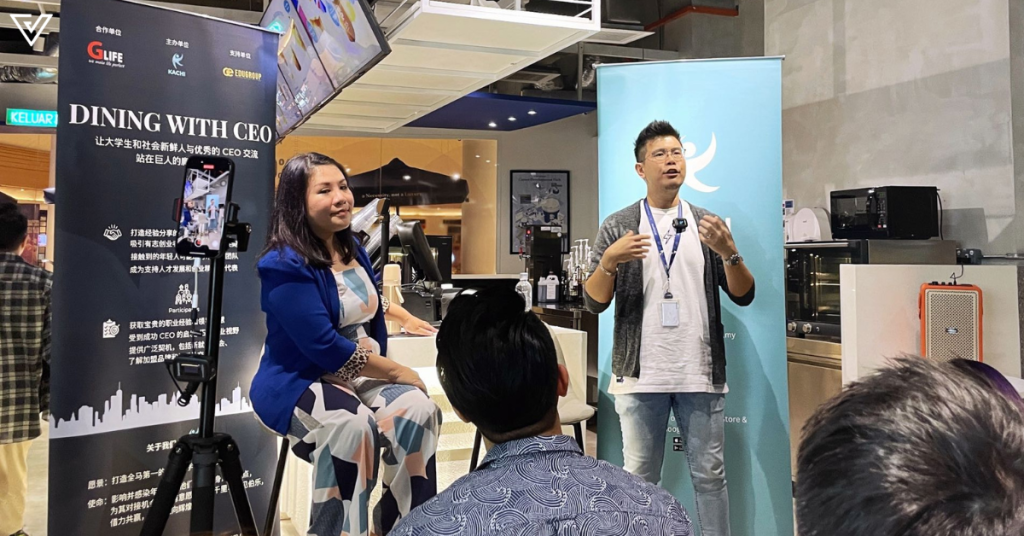
This is the result of a partnership from the early days, when a group of engineers wanted to have a business and approached ZUS Coffee, who agreed.
Going forward, the business has no grand plans of offering franchise opportunities to external parties in Malaysia, though they may expand to other countries through master franchises.
However, they’re planning to give franchise opportunities to internal staff. Instead of having ambitious, entrepreneurial staff leave the company, Venon believes it may be more conducive to offer them the pathway to start their own business under the company.
He shared that this is an initiative that’ll roll out in 2024.
3. The business was entirely bootstrapped until earlier this year
In establishing ZUS Coffee’s first store, it was very much Ian’s own funds that were used, Venon shared.
“As we scaled, all the friends, family, and fools within the team—as we used to run other businesses as well—we took out money and it was kind of a go big or go home kind of thing,” he said.
They never had any institutional investors or went for fundraising rounds until March 2023 when Filipino billionaire Frank Lao invested in the chain for a 35% stake.
“We didn’t have to,” Venon clarified, sharing that the deal wasn’t made because ZUS Coffee needed the money. “But we took that opportunity because the investor is from the Philippines, and can help pave the way for us to open up in the Philippines.”
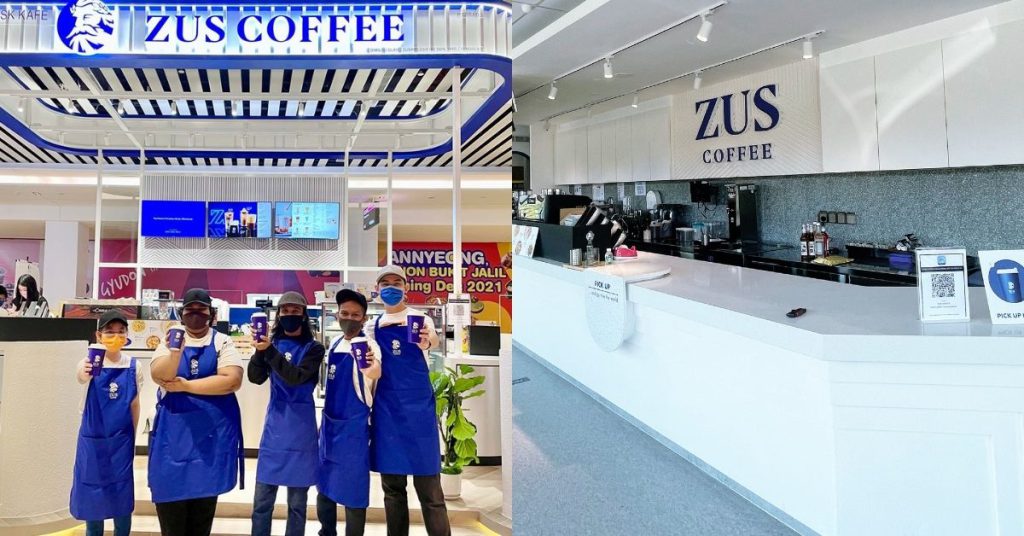
ZUS Coffee has even turned down investors because they still saw a lot of upsides in the business.
As Venon said, don’t chase valuation. Entrepreneurs can and should say no to investors if the circumstances aren’t right, and you still want to maintain your equity in the business.
4. They’ve only ever shut down two outlets
With 336 stores today, it’s shocking that ZUS Coffee only ever closed two outlets over four years. Furthermore, neither were because of any operational issues.
One was inside a coworking space in KL Sentral that shut down, while the other was in Sunway Pinnacle and the mall wanted the spot back.
So, what were they doing in order to only ever shut down two outlets?
Venon explained (with a little reference to Flash Coffee, a tech-driven chain that shut down in Singapore) that ZUS Coffee doesn’t chase growth at all costs. As rapidly as they’ve expanded, it’s important to them to ensure 100% of their outlets are EBITDA-positive (that’s earnings before interest, taxes, depreciation, and amortisation).
5. Controversy has been pivotal in building brand awareness
When asked about what marketing strategies have been most useful in building brand awareness and customer loyalty, Venon said: “creating controversy”.
Whether intentional or not, ZUS Coffee has found itself in various scandals over the years. If you’ve heard of the saying “any publicity is good publicity”, that’s what Venon believes. At the very least, these controversies have helped generate conversations.
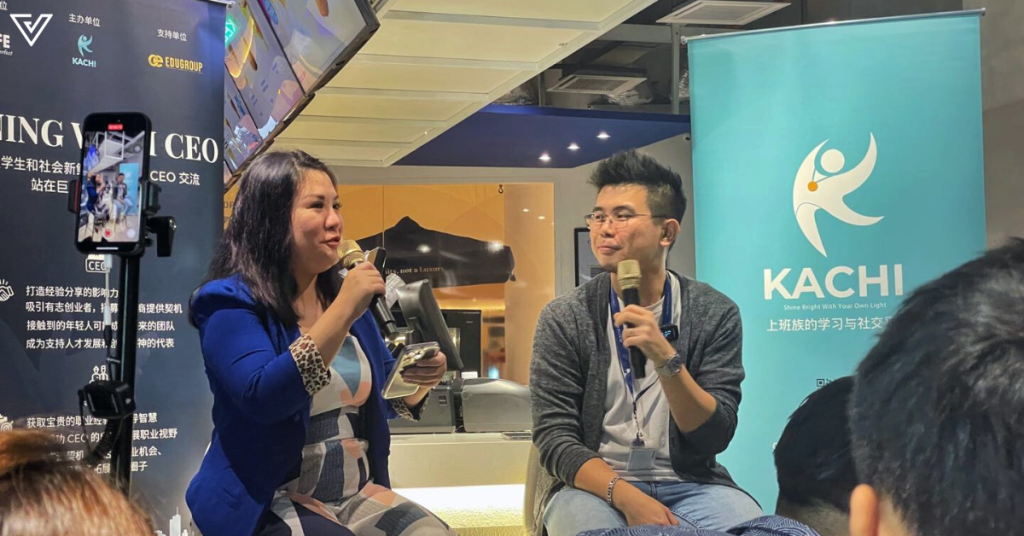
Venon recalled that in the early days, many felt they were a copycat of Starbucks, what with the Greek-styled logo (Starbucks’ logo is based on Greek mythology’s siren).
“But that actually helped us a lot in terms of word-of-mouth marketing and virality as well,” he said. Most recently, netizens called into question ZUS Coffee’s name and logo origins, which we got the brand to clarify here.
During the Q&A session, he clarified that they might’ve gotten away with some controversies as a smaller brand, but now that they’ve scaled, it’s definitely something they’re more wary of. The controversies they find themselves in nowadays are often accidental (“maybe karma,” he joked).
There are definitely decisions that he regrets, but he thinks it’s overall been a good learning journey for himself and the team.
So, if a business finds itself in some hot water, it’s not the end of the world, try to see the silver lining, and grow from there.
6. They sell their own retail products, from tumblers to instant coffee
By the end of the year, the team aims to have 360 outlets. By next year, they want to be the biggest coffee chain in Malaysia, surpassing Starbucks’ 400 stores.
But there are only so many stores they can open. What’s next?
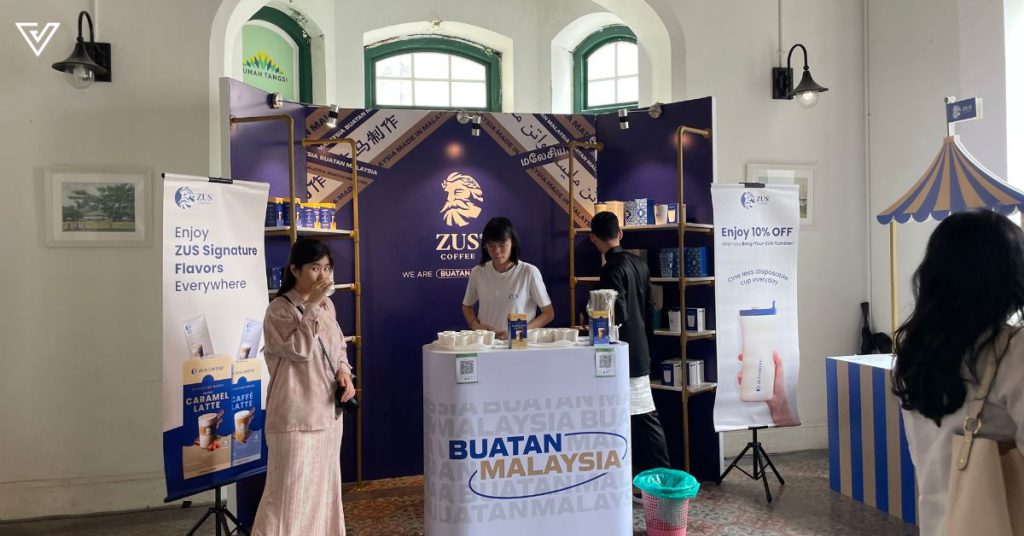
“We don’t want to just be a coffee chain, we want to be a coffee brand,” he explained. “So, we started thinking about what kind of verticals we can go into.”
Earlier this year, ZUS Coffee launched its own line of instant coffees. They’ve also rolled out their own merchandise in the form of tumblers, straws, coffee grinders, T-shirts, and socks.
Many businesses may want to expand upstream to tackle supply chain issues (think about how Loob Holding now has its own boba manufacturing plant), but ZUS Coffee wanted to create a more wholesome offering, perhaps comparable to Starbucks.
For now, Venon said that the team is being quite careful with this vertical, as they know that when it comes to the FMCG industry, a lot of cash flow issues may arise.
“That’s why we launch on Shopee first, to validate whether people will actually buy before we go all in,” he said.
He also teased the possibility of ready-to-drink coffees in the coming year, so we’re definitely keeping our eyes peeled for that.
Over the past four years, we’ve all been witnessing this homegrown chain grow into an iconic stalwart in the local F&B scene. It’s certainly no small feat, and we can’t wait to see what 2024 will bring for ZUS Coffee.

